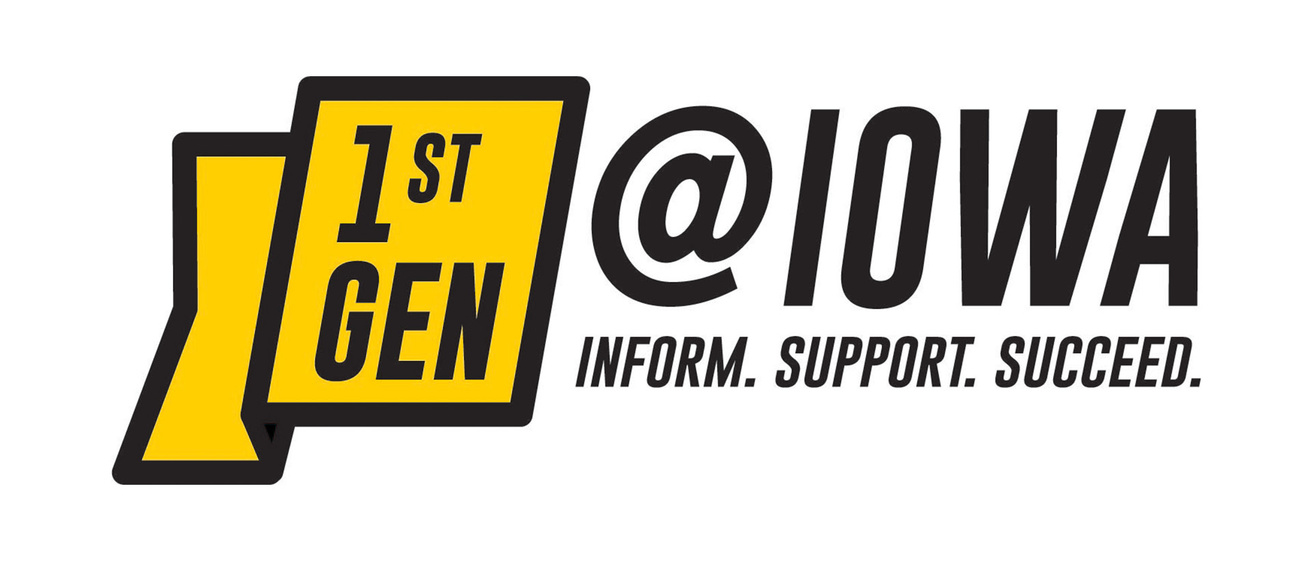Five University of Iowa faculty, staff, and students were recognized at the inaugural First-Generation Student Awards and Recognition Ceremony held Friday, Nov. 8, in Hancher Auditorium as part of the 2019 National First-Generation College Celebration.
The UI First-Generation Task Force established the awards to recognize first-generation student achievements as well as the outstanding advocacy and support efforts of faculty and staff. Each recipient received a plaque and $250.
Student recipients of the new awards are Lucille “Luci” Howard, Alexia Sanchez, and Miguel Angel Jacobo. Faculty/staff recipients are Cindy Seyfer and Shaun Vecera.
The 1stGen@Iowa initiative works to support first-generation students—those who do not have parents or guardians who completed a four-year degree—in their academic and career endeavors. About 22% of students in the undergraduate Class of 2023 are first-generation students.
First-Generation Student Achievement Award
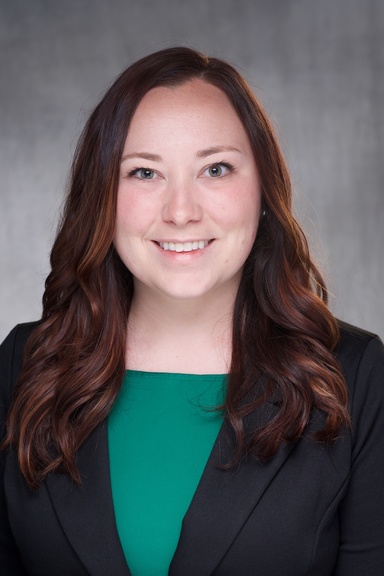
Lucille “Luci” Howard of Clutier, Iowa, is a UI alumna and current medical student who is the first in her family to pursue higher education.
Howard graduated magna cum laude from the UI in 2014 with a degree in psychology. As an undergraduate, she served as vice president of First Generation Iowa, an organization dedicated to supporting first-generation students. After graduation, Howard entered the Roy J. and Lucille A. Carver College of Medicine. During the 2018–19 academic year, Howard moved to Baltimore, where she earned a Master of Public Health from Johns Hopkins University’s Bloomberg School of Public Health with a focus on women’s and reproductive health. Her capstone project examined racial disparities in quality of life among women diagnosed with breast cancer. She became an outreach worker in southwest Baltimore, providing resources and support to individuals engaged in street-based sex work. Howard, who returned to medical school in June 2019, is applying for residency in obstetrics and gynecology.
Throughout medical school, Howard has been involved in the global health distinction track, traveling to Haiti to assist with cervical cancer screening efforts and rotating with the Oxford University Hospital in England. Her career goals include providing inclusive and equitable care to underserved populations and remaining involved with reproductive rights advocacy.
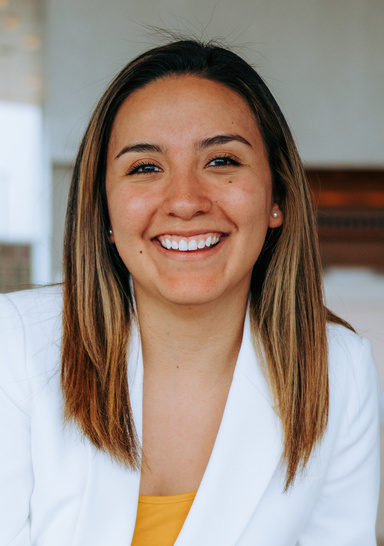
Alexia Sanchez, of Des Moines, is a fourth-year undergraduate student pursuing degrees in political science, social justice, and philosophy. Sanchez has served as a resident assistant and has administered campus initiatives through her role in UI Student Government to improve student life on campus. In 2018, Sanchez studied abroad for the summer semester in Verona, Italy, focusing on intercultural communication and volunteering at a local children’s center, where she assisted with teaching English. After returning to campus, she directed the 2018 Homecoming Parade and hosted the second annual “I’m the First” First-Generation Summit. Sanchez is now working to implement a Latinx Living-Learning Community on the UI campus called Unidos, or “united” in Spanish. As the youngest serving president for a League of United Latin American Citizens council in Iowa, Sanchez hopes to serve and support the local Latinx community in Iowa City. She has been invited to attend the 2019 Global Women Leaders Forum in Iceland and plans to travel to the Dominican Republic for a second study abroad experience. After graduating, Sanchez hopes to work in the immigration field to continue helping marginalized communities.
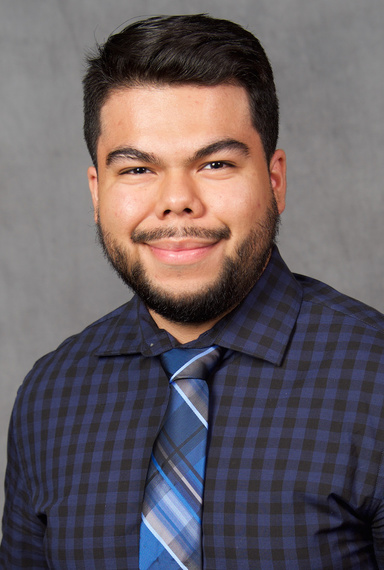
Miguel Angel Jacobo of West Liberty, Iowa, is a third-year undergraduate student majoring in Spanish and interdepartmental studies on the pre-med track. Jacobo has been involved with student organizations like the Association of Latinos Moving Ahead (ALMA), The Iowa Edge (TIE), and other minority-focused communities on campus, which he credits with helping him successfully transition to his new surroundings as a college student. Jacobo is president of the Lambda Theta Phi Latin Fraternity, director of public relations for TIE, peer leader for Iowa Edge, a mentor through ALMA, a tutor for TRIO Student Support Services, and a Summer Health Professions Education Program scholar. As a student leader, he helped spearhead the social media campaign #DoesUiowaLoveMe.
Jacobo, who has received numerous awards for his academic achievements and service to the university and its surrounding communities, attributes much of his success to his many mentors.
Award for Outstanding First-Generation Student Advocacy
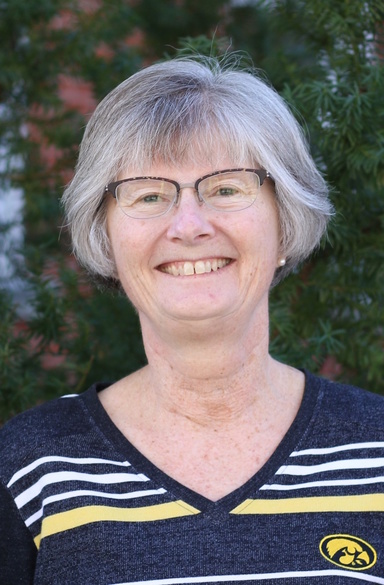
Cindy Seyfer, UI interim assistant provost and director of Student Financial Aid, was a first-generation college student and is passionate about helping others achieve their goal of earning a degree from the UI. Seyfer earned a Bachelor of Arts in biology from Cornell College in Mt. Vernon, Iowa, but credits her work-study job in the admissions and financial aid offices with launching her career path. Seyfer started at the UI as a graduate assistant in 1982 while earning her dual master’s degree in higher education with an emphasis in administration and student affairs. She started as a financial aid counselor in 1985 and has remained at the Office of Student Financial Aid, progressing from assistant director to associate director, senior associate director, and now interim director.
Seyfer says a highlight of her work is collaborating with others on campus to solve individual student issues and improve global processes to better serve students.
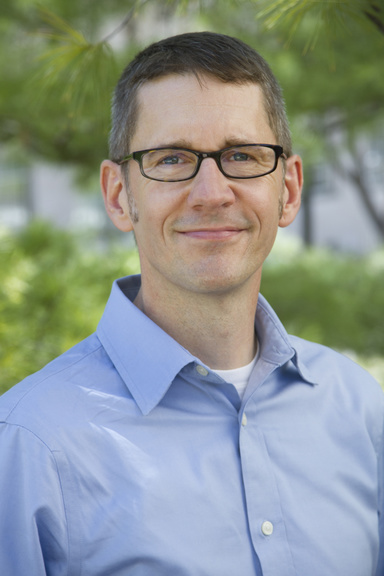
Shaun Vecera, professor and Herman J. and Eileen S. Schmidt Chair of the Department of Psychological and Brain Sciences, is a first-generation college graduate. After graduating from the University of Oregon, Vecera received a PhD from Carnegie Mellon University. Specializing in research on visual attention and perception, Vecera was appointed as the inaugural Herman J. and Eileen S. Schmidt Chair for Leadership in Undergraduate Education in 2016 and received the 2017–18 President and Provost Award for Teaching Excellence.
Vecera’s courses range from lecture classes such as elementary psychology (in which he has instructed more than 12,000 students to date) to a first-year seminar, How Psychology Can Save the Planet, to an online Learning About Learning course designed to help students learn more effectively.
